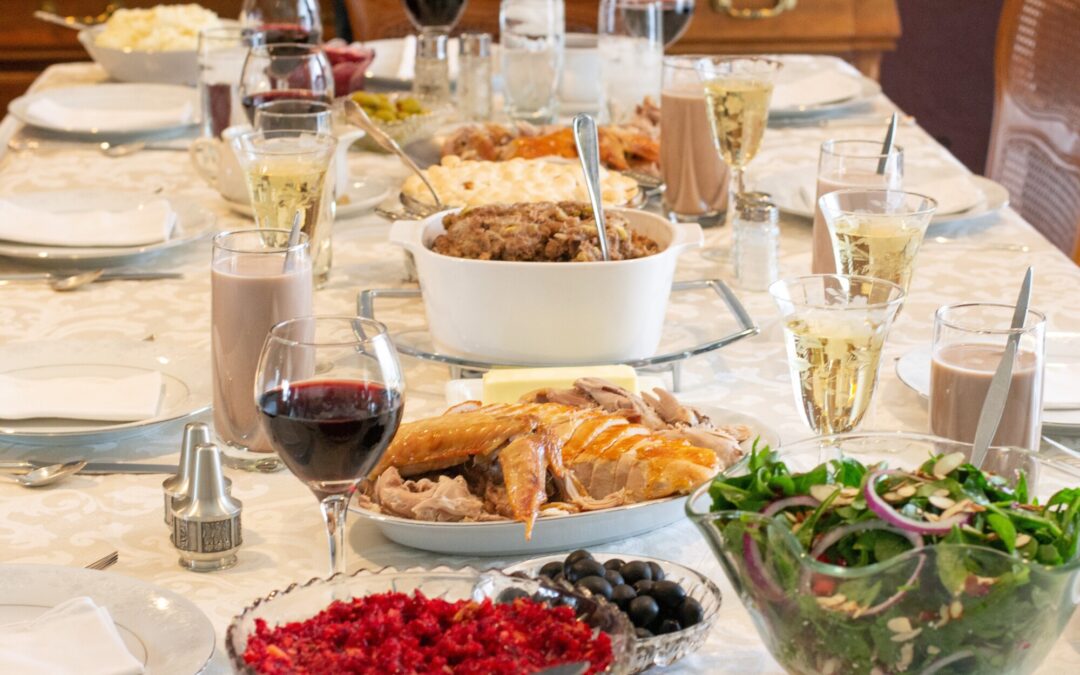Americans take a bite out of the holidays. The average American expects to gain eight pounds over the course of the holiday season.
Holiday eating is dangerous for everyone, especially people living with diabetes or prediabetes. If you need to monitor your blood sugar, you have to be mindful of holiday eating habits.
What should you do before you go to holiday events? How can you keep your blood sugar levels down in the middle of the holidays? What should you prioritize during your meals?
Answer these questions and you can keep the holiday pounds off while enjoying the festivities. Here is your quick guide.
Talk to Your Doctor
You can only manage diabetes with the help of your doctor. Before the holiday season gets underway, schedule an appointment and talk to them about diabetes and holidays.
In general, someone with prediabetes should lose weight. Losing just ten pounds may be enough to stave off type 2 diabetes and return to normal blood sugar rates. As such, people with prediabetes should develop a diet plan that trends toward weight loss.
But someone may have a very low weight. They should focus on reducing their blood sugar rates, namely through omitting carbohydrates from their diet.
There are important reasons for balancing blood sugar levels. Blood sugar levels control processes within the body, helping your sleep quality and cognition. If they are too high, they can impede organ function and hurt brain development.
A diabetes diet does not mean you have no room for holiday treats. Ask for suggestions from your doctor about what you can do.
Monitor Your Symptoms
Many people with prediabetes do not experience any symptoms. They may only know they have prediabetes after receiving a blood test at their doctor’s office.
Symptoms of prediabetes can include increased thirst, urination, and fatigue. These are classic symptoms of diabetes, and they may suggest someone has developed the full condition.
In rare cases, someone may experience skin discoloration. This is a sign of insulin resistance, suggesting that skin cells are rejecting the insulin that the pancreas produces.
When you have symptoms of prediabetes, do not panic. Take note that you have them and then think about what you ate previously.
As the holiday season goes on, be conscious of how your symptoms are going. If they occur during the day, you may need to adjust what you eat at night. You can take medications to reduce your blood sugar and avoid complications.
Limit Your Portions
The key to eating holiday food is to avoid overeating. You can have mashed potatoes, but don’t eat more than a single serving.
Try eating your food on smaller plates. When you finish your plate, you send a signal to your brain that you have eaten a lot of food. This can lead you to eat less.
When you are eating at a table, you should find a seat away from carbohydrate-rich foods. This may give you the incentive to eat healthier options.
You can enjoy more portions of whole grains and healthy carbohydrates. Brown rice, legumes, and bulgur wheat contain protein and antioxidants. Yet you should not go overboard and eat too many grains.
Avoid Desserts
When in doubt, avoid desserts. Bread stuffing and potatoes may not be good for your blood sugar. But they can have nutrients in them that are healthy.
Desserts rarely contain anything that is good for you. Butter and margarine are high in saturated fat, and they contribute to weight gain.
You can have some fruit for dessert, though you should avoid very sweet ones. Bananas and berries are loaded with antioxidants and dietary fiber.
Adopt a Meal Schedule
When you eat is just as important for your health as what you eat. If you go too long between your meals, your blood sugar may drop to dangerous levels. It takes time for sugar levels to go down after a meal, and high blood sugar levels can cause brain fog.
Try to keep to the same times for your meals every day. This will cue your pancreas to produce insulin at certain times, which can help you manage your condition.
Eat breakfast within two hours of waking up. Then wait a few hours to eat lunch at around noon. You can have dinner at five, but try not to eat past six.
If you are feeling hungry, you can have a snack. But keep it small and nutrient-heavy.
Fill Up With Vegetables
Managing diabetic symptoms does not mean starving yourself. You should still eat meals until you are full.
Your plate should be full of vegetables. Try to eat a variety of them in several different ways. You can have a salad with raw vegetables, but you should roast and saute your vegetables as well.
You can replace your meat with protein-rich vegetables. Edamame beans and Brussels sprouts contain several grams of protein per serving. You can boil, roast, and saute these vegetables in a number of recipes.
Enjoy Your Holiday Eating
Holiday eating and diabetes don’t go hand in hand. Talk to your doctor about what you can do this season. Be conscious of your symptoms over time.
Limit your portions, eating one scoop of carbs at a time. Avoid desserts and opt for healthy sides instead.
Eat your meals at the same time every day. But don’t go hungry for too long. Eat filling vegetables and whole grains that help reduce your blood sugar levels.
Keep finding good health advice. Ingredia provides informative mental and physical health guides. Read our guide to seven healthy habits you can start now.

